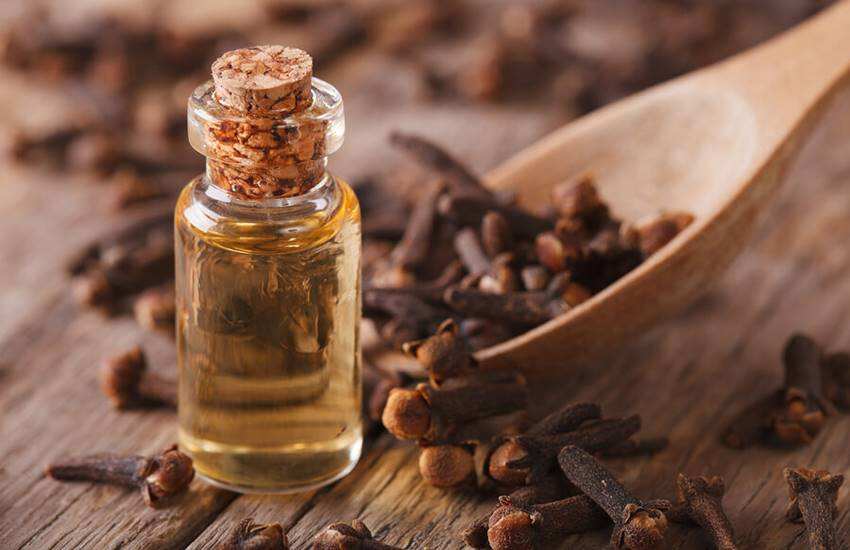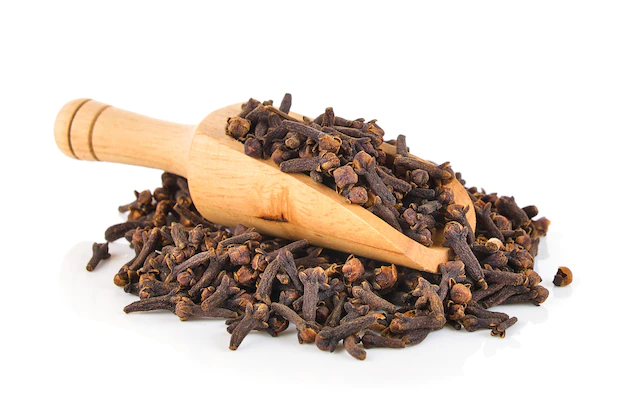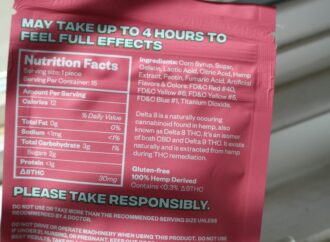The Many uses of Cloves
 Clove (Syzygium aromaticum) is indigenous to Indonesia. Its dried flower buds are popularly used in Chinese and Ayurvedic medicine. It’s one of the most commonly used kitchen spices — used as a tastemaker and for its health benefits. Its essential oil is believed to have umpteen benefits and nutritional properties.
Clove (Syzygium aromaticum) is indigenous to Indonesia. Its dried flower buds are popularly used in Chinese and Ayurvedic medicine. It’s one of the most commonly used kitchen spices — used as a tastemaker and for its health benefits. Its essential oil is believed to have umpteen benefits and nutritional properties.
Cloves are used for a variety of things, including antiseptics, stimulants, flavouring agents, perfumes, carminatives, dental analgesics, cigarette preparation, and the production of vanillin. Clove oils, dried flower buds, leaves, and stems are generally used to make medicine. Clove oil contains eugenol, a chemical that may aid with pain relief and infection prevention.
Common Adulterants
Exhausted cloves: Used or exhausted cloves that have had their oil removed through distillation are frequently disguised and sold as pure, unadulterated cloves. This process of extracting oil removes all the benefits of cloves, thereby rendering them useless. When pressed with fingernails, these cloves are dark in colour and shrunken. They float in water and do not contain any oil.
Clove stalks: Clove stalks are most commonly used to adulterate clove powder. The presence of isodiametric sclerides and calcium oxalate prisms can be used to identify this. They’re often combined with cloves because of their similar colour, odour, and flavour. They have a lesser oil content. Artificial fragrances are commonly added to these cloves by vendors, which dissipate when cooked, leaving only tasteless cloves.
Mother cloves: Mother cloves are the ripened fruits of the clove tree that are dark brown and oval in shape. These cloves are slightly aromatic, contain starch, and have a low volatile oil concentration.
Brown cloves: These are the swollen, expanded flowers of the clove tree in which the stamens get detached. They’re the same colour as cloves, but they have less volatile oil than real cloves.
How to detect adulteration in Cloves
The FSSAI (Food Safety and Standards Authority of India) shared a method of detection of clove adulteration with used cloves at home. To detect clove adulteration, put a few suspected cloves in a glass of water. The unadulterated cloves will sink to the bottom of the glass, while the contaminated cloves will float to the top.
Besides this, it is important to note that adulterated/ exhausted cloves are usually small in size and shrivelled in appearance and smell less pungent than real, unadulterated cloves.
Consumers beware
Do keep in mind the aforementioned points of caution, the next time you go spice shopping. Food adulteration is widespread and rampant, so consumers beware and practice safe food habits!
 Food Manifest
Food Manifest 















Leave a Comment
Your email address will not be published. Required fields are marked with *